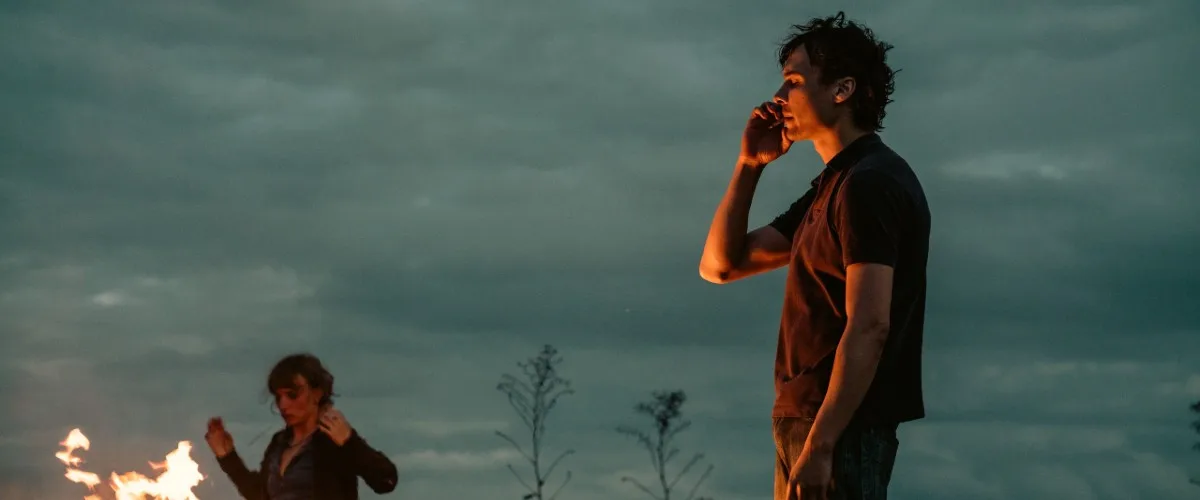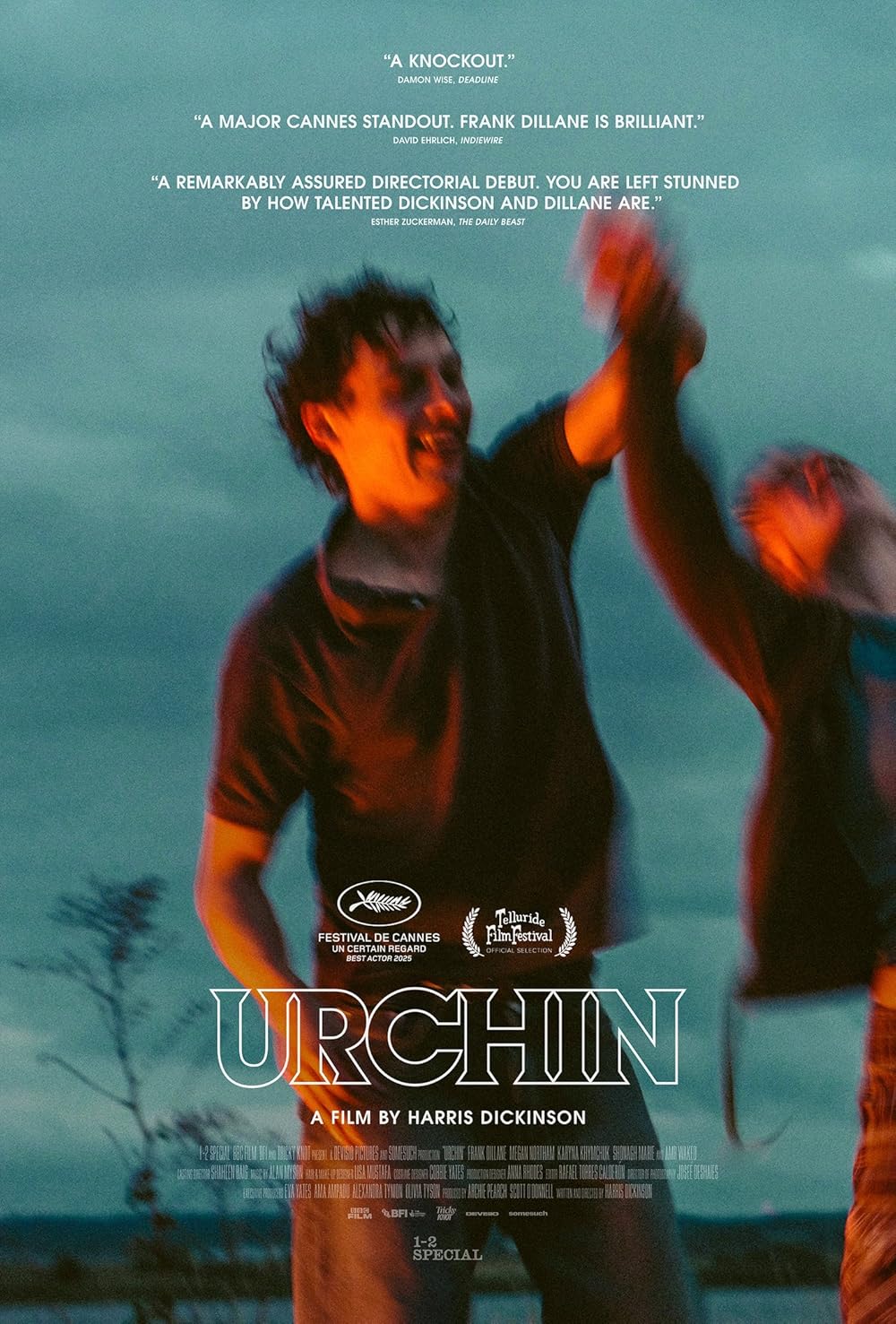A conversation early in Harris Dickinson’s excellent directorial debut “Urchin” (winner of the FIPRESCI Prize at Cannes this year) between protagonist Mike (Frank Dillane) and a guy he meets on the street named Simon (Okezie Morro) speaks of “a gap of empathy” in modern society. Dickinson’s nuanced character study closes that gap, but it does so in a way that’s never sentimental or manipulative. Inspired by tales of people on the fringe by Mike Leigh, Sean Baker, and the Safdie Brothers, “Urchin” stays committed to presenting Mike’s story without frills, recognizing that it’s just a tragically common one of a man spiraling down the drain of society.
Mike has been living on the streets for years, fighting a losing battle against his drug addiction. Shortly after Simon’s comment, Mike sucker punches him, steals his watch, and quickly pawns it for 40 bucks. He’s picked up shortly thereafter, forced into a nine-month stint behind bars. When he emerges, he’s clean and ready to start again, placed in a hostel for people reentering society, and even gets a job as a chef (cutly smiling as he practices saying “yes, chef” in just the right way). He’s a good employee, and he spends his days listening to motivational recordings that seem to be working.
The problem with Mike is that he retreats or explodes when faced with conflict. A customer complains about his steak at the restaurant, and he argues instead of capitulating. He clashes with a co-worker who admittedly seems to go on way too many breaks. And then a meeting is coordinated with him and Simon—one of those events designed to heal both of them—and the swirl of guilt on Dillane’s face is palpable. One can see that this is going to rattle him in a way that will send him spiraling yet again.
Dillane is jittery, unpredictable, and raw, but never in a forced Hollywood fashion. He plays discomfort incredibly well, sketching a portrait of the kind of guy who uses drugs and makes bad decisions in part because of how poorly he handles setbacks. It’s an excellent performance, one that fills almost every frame of the movie without being showy. It’s a humane portrayal of a person that feels consistently true instead of sentimental. Early in the film, we track water from a shower down a drain and into nature, illustrating how easy that is to do for some people. Broken systems let it happen, and temptation is more motivational than pre-recorded advice.
It helps that Dickinson proves himself an excellent director right from the beginning. Working with Bertrand Bonello’s regular cinematographer Josée Deshaies (who shot “The Beast” last year), he gives “Urchin” an uncluttered visual language that allows our eye to take in the entire moment without the sweaty close-ups that usually define tales of the homeless and addicted. We sit with Mike in these spaces, often presented in static camera shots or slow zooms like in a great scene in which Mike sings karaoke (“Whole Again” by Atomic Kitten, an inspired choice) on a couch with two co-workers, under a tiny mirror ball. We get the mundanity of the moment, but also get how much this brief burst of goofy happiness means to someone who has had too little of it in his life. Dickinson gets a little too aggressive with a score that uses chunky guitar to build tension in the final act when Dillane is good enough to sell Mike’s decline without it. Still, it’s a minor complaint for a screenwriter/director who makes so many smart choices with his first film.
Yes, there’s the influence of the kitchen sink dramas of Leigh & Loach, and the empathy of Baker, but the film that echoes the most through “Urchin” to this viewer is actually the one that announced Dickinson just eight years ago. 2017’s “Beach Rats” featured Dickinson’s debut performance and was an acclaimed leap forward for its filmmaker, Eliza Hittman. Dickinson clearly learned a lot on that set as both an actor and filmmaker because he captures with his own work why that movie was so successful: an understanding of the complexity of the human condition and a refusal to turn into melodrama. That drama was nominated for Best Male Lead and Best Cinematography at the Independent Spirit Awards that year. This one is deserving of the same—and maybe more.




















